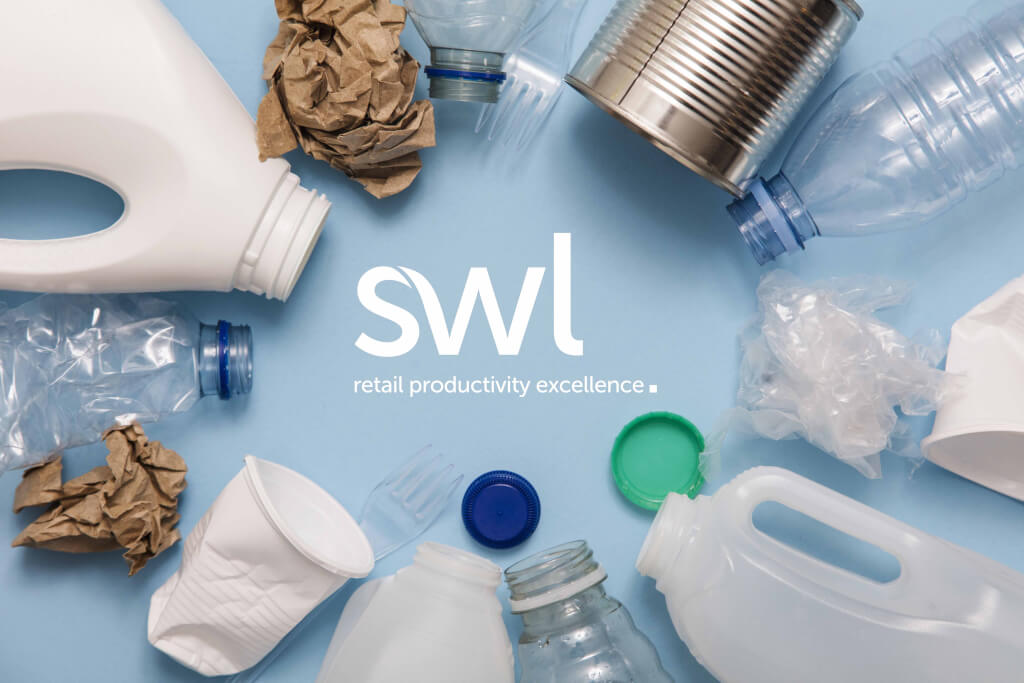A brand new report from McKinsey & Company gives fascinating insights into how these sustainability initiatives will impact on all industries, including retail.
‘The drive toward sustainability in packaging—beyond the quick wins (February 2020)’
The report examines many of the key facets that our businesses must consider in this area. For example, an examination of how system-level approaches, including collaboration along the value chain, can make our approach to packaging more sustainable. Sustainability – especially single-use packaging waste—is combining with other powerful trends to drive major changes in consumer packaging. Powerful customer awareness of packaging waste is a major driver of course. Regulators are starting to move on the issue. FMCG companies and retailers ‘are proactively making bold commitments to improve both the sustainability of their packaging and to fundamentally rethink their packaging systems. There will be significant impact on packaging converters and their value chain, which could threaten the survival of many in the industry.’
Deloitte (2020) echo this imperative, making a strong case for retailers to adapt to survive:
‘Although there is a big moral aspect to this, there is also a significant business opportunity. Some retailers have sustainability on their agenda, but those who don’t prioritise it now are at risk of not surviving the next 5-10 years.’
The report comes concurrently with a number of retailers launching innovative plans to provide customers with practical sustainability solutions. For example, Marks and Spencer piloted the sale of so-called ‘naked’ vegetables last year, with considerable savings in plastic packaging. Last month’s Retail Bulletin announced news of Asda’s teaming up with top UK brands to launch a pilot ‘sustainability store’ in Leeds:
‘From May, the shop will give customers the chance to fill up their own containers with products such as Asda’s own-brand coffee, rice and pasta. Shoppers will also be able to use refill points to stock up on Kellogg’s cereals such as Coco Pops and Rice Krispies as well as Unilever’s PG Tips tea.’
With the trial lasting for at least three months, customers will be asked to give their feedback on the store to enable Asda to make an informed decision on whether to roll the concept out to other locations. In addition to the refill stations, the store will include a ‘naked florist’ offering plastic-free flowers and loose produce with items such as cucumbers and mushrooms being taken out of their plastic packaging. It will also offer a range of new recycling facilities, including a reverse vending machine for plastic bottles and cans, hanger recycling and a deposit box for unwanted small plastic toys.’
The McKinsey report focuses on areas of prime concern and opportunity:
- The global growth in the packaging industry and subsequent choices of packaging materials, including the increase in use of single-use plastics.
- The subsequent heavy burden on the environment
- In Europe, reportedly only 40% of plastic is recycled
- Difficulties in recycling multi-material packaging
- Customer-led criteria: ‘easy open and resealable closures, freshness retention, ready-to-eat/convenient foods/portability, one-hand use, and single-portion/smaller packs’
Governments have started to respond to the public outcry:
- Some countries – particularly France, Germany, and the United Kingdom—are exceeding the already strict recycling regulations across the European Union with ‘Extended Producer Responsibilities (EPRs).’ These targets are becoming ever more aggressive
- ‘FMCGs and retailers will have to face complicated trade-offs such as recyclability versus carbon footprint and food waste’
- ‘FMCG industry efforts to promote sustainability are led by a focus on high recyclability and recycled content.’
- ‘System-level changes’ will include major change in ‘the broader packaging and recycling system’, coordination across the entire value chain, improving existing recycling infrastructure, recycling, availability, and initiatives to increase consumer awareness and behavioural change across communities.
What are the productivity implications for retailers?
In the case of fierce pressure from a growing cross-section of our consumers, retailers must balance many challenging and often conflicting factors: customer needs, quality of produce, legislation, supply chain and sustainable cost implications. It has never been more imperative to focus on productivity systems to manage this seismic change.
SWL are specialists in productivity improvement in the face of such complex operational challenges. Call us today on 01527 895020 to arrange a discussion on how SWL can help you to tackle productivity in the light of our changing retail landscape.

